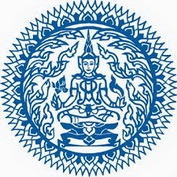Thai Deputy Minister of Agriculture and Cooperatives inspecting Operation to Combat IUU Fishing in Chonburi Province
Thai Deputy Minister of Agriculture and Cooperatives inspecting Operation to Combat IUU Fishing in Chonburi Province
วันที่นำเข้าข้อมูล 5 มิ.ย. 2561
วันที่ปรับปรุงข้อมูล 29 พ.ย. 2565
| 1,494 view

On 8 February 2018, Mr. Lak Wajananawatch, Deputy Minister of Agriculture and Cooperatives, led a delegation to Chonburi Province to inspect Thailand’s effort to combat IUU fishing, and the control of Thai fishing vessels at the Chonburi Province Port-in Port-out (PIPO) Control Center and the Kanasrinuwat fishing pier as well as visited the Fish Quarantine and Inspection Office at the Laem Chabang Port to inspect imported fisheries product containers. Important progress during the visit is as follows:
1. The progress of combating IUU fishing, including vessels inspection at the PIPO Center, in order to ensure transparency and adhere to operational standards and fisheries management to ensure sustainability of resources and eradicate IUU fishing. Such inspection is carried out through the integrated roundthe-clock effort by the interdisciplinary team, comprising of the Fisheries Department, Marine Department, Thai Maritime Enforcement Coordinating Center (MECC), Department of Labour Protection and Welfare, Department of Employment, Department of Provincial Administration, and Marine Police Division. During this process, authorities involved would jointly grant fishing vessels permission to carry out their operation at sea, and reenter the port within the timeframe as permitted by law. The PIPO Center has to carry out relevant procedures including documents checking, crew inspection, and fishing vessels inspection in order to ensure the installation of VMS system on the boat as well as the health, wellbeing, and safety of the crew, during both the port-in and port-out process.
2. Inspection of the verification process of aquatic animals upon entry to the port, including weight and species identification, port audit, and port operation; system established to ensure traceability of aquatic animals caught by Thai fishing vessels in order to track fisheries products throughout supply chains. All aquatic animals caught must be registered in the logbooks, which contained catch information including the actual descriptions, amount of catch, fishing location and types of fishing gears. After entering the port, aquatic animals will have to be weighed and sorted out according to species, and the Marine Catch Purchasing Document (MCPD) will be filled accordingly, once the aquatic animals are sold. This process is intended to ensure that sources of aquatic animals can be traced back throughout the supply chains.
3. Examination of imported fisheries products and the import process, during which goods in containers and documents related to import authorisations
were inspected. Aquatic animal importers must seek approval from the Fish Quarantine Inspection Service, Fisheries Department, where animals awaiting importation and relevant documents, including Catch Certificate, Certificate of Origin and Customs Clearance, will be checked. Only when the information is accurate, the importation will be authorised to proceed. In addition, the delegation inspected the entry process of imported fisheries products containers which need to be scanned through X-ray machines and the issuance of the import movement document (IMD) to the authorised importers.
Deputy Minister reaffirmed Thailand’s commitment in strictly regulating operation of Thai fishing vessels, inspecting of imported fisheries product containers, and raising awareness among fisheries operators throughout supply chains in order to ensure their cooperation in undertaking lawful fishing activities. In this regard, the Deputy Minister instructed relevant authorities to strictly follow the existing laws and regulations while fisheries product records must be traceable throughout the entire supply chains. These will build confidence of the international community in Thailand’s steadfast efforts to combat IUU fishing and ensure sustainable management of aquatic resources to safeguard sufficient resources and food security for future generations.
In this occasion, representatives from Stella Maris and Environmental Justice Foundation (EJF) were also invited to attend the inspection. Aside from promoting insightful and accurate understanding among NGOs regarding the actual situation on the ground and showcasing Thailand’s commitment to combat IUU fishing, it offers opportunities for NGO representatives to provide suggestions and exchange ideas which are valuable for improvement of the government’s efforts in the future.
ตามนโยบายของรัฐบาลในการแก้ไขปัญหาการทำประมงผิดกฎหมาย เมื่อวันที่ ๘ กุมภาพันธ์ ๒๕๖๑ นายลักษณ์ วจนานวัช รัฐมนตรีช่วยว่าการกระทรวงเกษตรและสหกรณ์ พร้อมคณะ ได้เดินทางไปตรวจเยี่ยมการปฏิบัติงานการแก้ไขปัญหาการทำประมงผิดกฎหมายและการดำเนินการควบคุมการทำประมงของเรือประมงไทย ณ ศูนย์ควบคุมการแจ้งเข้า – ออกเรือประมง (PIPO) จังหวัดชลบุรี และท่าเทียบเรือสะพานปลาคณาศรีนุวัติ ตลอดจนการตรวจสอบสินค้าประมงนำเข้าจากต่างประเทศทางตู้คอนเทนเนอร์ ณ ด่านตรวจสัตว์น้ำ ท่าเรือแหลมฉบัง โดยได้ติดตามความคืบหน้าในประเด็นสำคัญ ดังนี้
๑. ความก้าวหน้าในการปฏิบัติงานกระบวนการต่าง ๆ ของการแก้ไขปัญหาการทำการประมงผิดกฎหมายของประเทศไทย เพื่อให้มีความชัดเจนและเข้มข้นตามมาตรฐานการปฏิบัติงานในการบริหารจัดการประมงไว้ให้เกิดความยั่งยืนของทรัพยากรและปราศจากการทำการประมงที่ผิดกฎหมาย โดยได้ติดตามการดำเนินการควบคุมการทำการประมงของเรือประมงไทยผ่านศูนย์ควบคุมการแจ้งเข้า – ออกเรือประมง (PIPO Control Center) ในด้านการตรวจการเข้าออกของเรือประมง ซึ่งในการดำเนินงานขั้นตอนต่าง ๆ เจ้าหน้าที่จากสหวิชาชีพที่ปฏิบัติหน้าที่ประจำศูนย์ PIPO ตลอด ๒๔ ชั่วโมง ได้แก่ กรมประมง กรมเจ้าท่า ศูนย์ประสานการปฏิบัติในการรักษาผลประโยชน์ของชาติทางทะเล (ศรชล.) กรมสวัสดิการและคุ้มครองแรงงาน กรมจัดหางาน กรมการปกครอง และกองบังคับการตำรวจน้ำ จะร่วมกันพิจารณาอนุญาตให้เรือออกไปทำการประมงและกลับเข้าเทียบท่าหลังจากการทำประมงตามกฎหมายกำหนด โดยจะมีการตรวจเอกสาร ตรวจลูกเรือประมง ตรวจเรือประมงที่จะต้องติด VMS รวมทั้งการตรวจสอบในประเด็นความปลอดภัย สุขอนามัย สวัสดิภาพของคนประจำเรือ ทั้งขาไปและกลับทุกครั้ง
๒. กระบวนการตรวจสอบและอนุญาตให้นำสัตว์น้ำขึ้นท่า การตรวจสอบชนิดและน้ำหนักสัตว์น้ำขึ้นท่า การตรวจประเมิน (Audit) ท่าเทียบเรือ การปฏิบัติงานของท่าเทียบเรือ ซึ่งสัตว์น้ำที่จับโดยเรือประมงไทยได้มีการจัดวางระบบการตรวจสอบย้อนกลับ เพื่อให้ทราบถึงแหล่งที่มาของสินค้าและผลิตภัณฑ์ประมงทะเลได้ตลอดสายการผลิต (Supply Chain) ตั้งแต่สัตว์น้ำที่จับได้ต้องมีการจดบันทึกการทำประมง (logbook) ตามความเป็นจริงทุกครั้ง และมีรายละเอียดของชนิดสัตว์น้ำ ปริมาณสัตว์น้ำ บริเวณที่จับ เครื่องมือทำการประมง และเมื่อนำสัตว์น้ำขึ้นที่ท่าเทียบเรือ จะต้องมีการคัดแยกและชั่งน้ำหนักสัตว์น้ำรายชนิด โดยเมื่อมีการซื้อขายสัตว์น้ำ จะต้องกรอกข้อมูลชนิดและปริมาณสัตว์น้ำที่ซื้อขายในเอกสารกำกับการซื้อขายสัตว์น้ำ (Marine Catch Purchasing Document - MCPD) เพื่อให้มีข้อมูลในการตรวจสอบย้อนกลับถึงแหล่งที่มาของสัตว์น้ำในทุกขั้นตอนตลอดสายการผลิต
๓. กระบวนการตรวจสอบสินค้าประมงนำเข้าจากต่างประเทศ ซึ่งได้เห็นกระบวนการขั้นตอนการตรวจสอบสินค้าทางตู้คอนเทนเนอร์ และเอกสารที่เกี่ยวข้องในการอนุญาตนำเข้าสินค้าต่างประเทศ โดยผู้ประกอบการที่นำเข้าสัตว์น้ำจากต่างประเทศ ต้องขออนุญาตนำเข้าสัตว์น้ำ ซึ่งด่านตรวจสัตว์น้ำของกรมประมงจะตรวจสอบเอกสารและสัตว์น้ำ อาทิ Catch Certificate, Certificate of Origin และ Customs Clearance หากข้อมูลถูกต้อง จึงจะอนุญาตให้นำเข้าสัตว์น้ำหรือผลิตภัณฑ์สัตว์น้ำได้ จากนั้นยังได้ดูการตรวจสอบควบคุมสินค้าประมงที่นำเข้าทางตู้คอนเทนเนอร์โดยตรวจสอบด้วยเครื่องเอ็กซเรย์ และการออกหนังสือกำกับการจำหน่ายสัตว์น้ำนำเข้า (Import movement document - IMD) ให้กับผู้นำเข้าสัตว์น้ำด้วย
รัฐมนตรีช่วยว่าการกระทรวงเกษตรฯ ได้เน้นย้ำถึงการดำเนินการอย่างเข้มงวดทั้งในเรื่องของการควบคุมการทำการประมงของเรือประมงไทยและการตรวจสอบสินค้าประมงนำเข้าจากต่างประเทศทางตู้คอนเทนเนอร์ และการสร้างความตระหนักรู้ให้กับผู้ประกอบการประมงตลอดสายการผลิต เพื่อความร่วมมือในการทำประมงอย่างถูกกฎหมาย ทั้งนี้ ได้กำชับให้หน่วยงานที่เกี่ยวข้องดำเนินการให้เป็นไปตามระเบียบและกฎหมายที่กำหนดไว้อย่างเคร่งครัด โดยสินค้าประมงจะต้องสามารถตรวจสอบย้อนกลับได้ตลอดเส้นทางในทุกกระบวนการ ซึ่งเป็นการสร้างความมั่นใจให้กับนานาประเทศว่าประเทศไทยมีความพยายามที่จะแก้ไขปัญหาการทำการประมงผิดกฎหมาย และมีความมุ่งมั่นที่จะบริหารจัดการทรัพยากรประมงให้เกิดความยั่งยืน เพื่อให้ทรัพยากรประมงมีเพียงพอ และมีความมั่นคงทางด้านอาหารให้กับรุ่นลูกรุ่นหลานต่อไปในอนาคต
อนึ่ง ในการตรวจเยี่ยมการครั้งนี้ มีผู้แทนจากองค์กร Stella Maris และ Environmental Justice Foundation (EJF) เข้าร่วมด้วย ซึ่งนอกจากจะช่วยสร้างความเข้าใจที่ถูกต้องให้กับองค์กรเอกชนเกี่ยวกับการทำงานในพื้นที่ เพื่อสะท้อนความเข้มแข็งของไทยในการแก้ไขปัญหาการทำการประมงผิดกฎหมายแล้ว ยังเป็นโอกาสให้ผู้แทนองค์กรดังกล่าวได้แลกเปลี่ยนข้อเสนอแนะอันเป็นประโยชน์ต่อการดำเนินการของหน่วยงานภาครัฐต่อไปด้วย
TOP
กรมยุโรป กระทรวงการต่างประเทศ
Department of European Affairs
Department of European Affairs
ที่อยู่ : กระทรวงการต่างประเทศ 443 ถนนศรีอยุธยา กรุงเทพมหานคร 10400
จันทร์ - ศุกร์ เวลา 08.30 - 16.30 น. (ยกเว้นวันหยุดและวันหยุดนักขัตฤกษ์)
0-2203-5000 ต่อ 13174
0-2643-5140
Copyright © 2018 MFA All rights reserved.